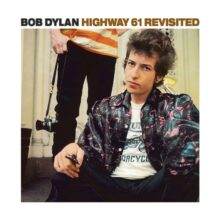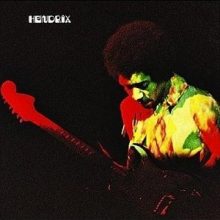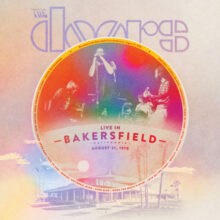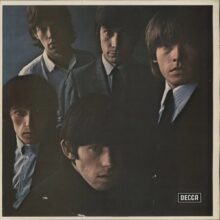There are few voices in American music that carry the weight of history, faith, and resilience quite like Mavis Staples. Now 86, Staples is still moving forward with the same passion that has defined her life in music, announcing the release of her new album Sad And Beautiful World for November 7. Produced by Brad Cook (Bon Iver, Waxahatchee, Nathaniel Rateliff), the record is a sweeping celebration of survival and connection, featuring appearances from some of music’s greatest names.
The album bridges seven decades of the American songbook, a span that mirrors Mavis’ own extraordinary career. From gospel and soul to blues, folk, and rock, Staples’ voice has never just been about performance—it has been about spirit, activism, and unity. On Sad And Beautiful World, she reimagines timeless songs, sings original pieces, and collaborates with a circle of artists who, like her, have shaped the soundscape of multiple generations. Buddy Guy, Bonnie Raitt, Jeff Tweedy, Derek Trucks, Justin Vernon, Katie Crutchfield, and MJ Lenderman are among the featured artists, but there is no mistaking whose presence is at the centre of this project.
The first taste of the record is Staples’ rendition of Kevin Morby’s “Beautiful Strangers,” a track that speaks to compassion in the face of violence and uncertainty. For Morby, hearing Staples transform his song was more than an honour: “Having one of the best, most important vocalists and cultural figures of both the 20th and 21st century sing one of my songs is hands down the greatest moment and highest honour of my career.”
Mavis Staples’ journey began in Chicago in the late 1940s, when her father, the legendary Roebuck “Pops” Staples, gathered his children into what would become one of the most influential gospel and soul groups of all time—the Staple Singers. With sisters Cleotha and Yvonne and brother Pervis, the family became a guiding light in gospel music before crossing into mainstream soul and protest songs that became anthems for the Civil Rights Movement.
The Staple Singers’ catalogue is peppered with songs that carried not just melody, but purpose—“Respect Yourself,” “I’ll Take You There,” and “Let’s Do It Again” among them. They gave a voice to the struggles and hopes of African Americans during the 1960s and 1970s, blending Pops’ gospel-rooted guitar with harmonies and a message of empowerment.
Mavis, the youngest, quickly became the lead voice, her deep contralto instantly recognisable and full of conviction. By the late 1960s, she was also embarking on solo work, catching the attention of Bob Dylan, who famously proposed marriage to her, and later working closely with Prince, who produced two of her albums in the 1980s.
Today, Mavis is the last surviving member of the original Staple Singers, carrying forward not only her family’s legacy but also the collective memory of gospel, soul, and protest music that shaped modern American culture.
Over her career, Staples has been inducted into the Rock and Roll Hall of Fame, the Blues Hall of Fame, and the Gospel Hall of Fame. She has received GRAMMY Awards, including a Lifetime Achievement Award, and has been honoured at the Kennedy Center. She is one of the rare artists who has seamlessly collaborated across genres and eras—working with Aretha Franklin, Bob Dylan, Prince, Willie Nelson, Ry Cooder, and more recently Wilco’s Jeff Tweedy, who produced a string of acclaimed late-career albums for her.
Her influence stretches far beyond music. As part of the Staple Singers, she stood on the frontlines of the Civil Rights Movement, singing at rallies led by Dr. Martin Luther King Jr. and providing a soundtrack for change. Through decades of shifting musical landscapes, she has remained constant—rooted in gospel, but always expanding into soul, blues, folk, and rock, meeting each generation on its own terms while staying true to her spirit.
Far from slowing down, the past 15 years have been a creative rebirth for Mavis Staples. Her partnership with Jeff Tweedy yielded three acclaimed albums—You Are Not Alone (2010), One True Vine (2013), and If All I Was Was Black (2017). These records introduced her to new audiences, balancing raw gospel power with contemporary songwriting and production.
In 2016, she released Livin’ on a High Note, an album written entirely for her by a range of artists including Neko Case, Ben Harper, Aloe Blacc, and Nick Cave. Then came 2019’s We Get By, produced by Ben Harper, which centred on messages of empathy, justice, and togetherness. Each album has reinforced her relevance in the 21st century, showing that Staples is not simply a legacy artist but an active, evolving voice.
Equally remarkable is Staples’ relentless dedication to live performance. Even in her mid-80s, she continues to tour internationally, delivering concerts filled with joy, humour, and conviction. In recent years she has shared stages with Brandi Carlile, Norah Jones, and Hozier, proving herself not just an honoured guest but a commanding presence. Audiences young and old still flock to see her, drawn by the combination of gospel power and soulful intimacy that only Mavis Staples can deliver. Whether at a major festival or an intimate theatre, she continues to turn every performance into a gathering of spirit and community.
Brad Cook, who helmed production for Sad And Beautiful World, set out to frame Staples’ voice as the anchor of the record. He began with bare arrangements—just piano and drums—building around her phrasing and presence, ensuring that her vocal power was never overshadowed. The result, Cook explains, was a record in the tradition of Will the Circle Be Unbroken, where community and collaboration guide the sound.
For Staples, the album is about compassion and endurance. “I just have to deliver the compassion I feel,” she says. “I want to share the song the way I feel it.”
At 86, Mavis Staples remains a force. Where many artists her age retreat, she continues to create, collaborate, and tour, reminding audiences that love, resilience, and song are inseparable. Her new record is not just another album—it is another chapter in a story that has already shaped American music in profound ways.
Sad And Beautiful World Tracklist
Chicago
Beautiful Strangers
Sad And Beautiful World
Human Mind
Hard Times
Godspeed
We Got To Have Peace
Anthem
Satisfied Mind
Everybody Needs Love
Stay updated with your free Noise11.com daily music news email alert. Subscribe to Noise11 Music News here
Be the first to see NOISE11.com’s newest interviews and special features on YOUTUBE and updated regularly. See things first SUBSCRIBE here: Noise11 on YouTube SUBSCRIBE
Noise11.com
Follow us at https://bsky.app/profile/noise11.bsky.social
Noise11 on Instagram
Comment on the news of the day, join Noise11 on Facebook



















